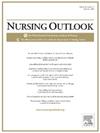欺凌对护士离职意向、病人护理和躯体健康投诉的影响:检查人员配备充足性和压力心态的重要性
IF 3.7
2区 医学
Q1 NURSING
引用次数: 0
摘要
护理中的欺凌是一个普遍而持久的问题,它会导致压力水平升高和一系列负面的员工结果,包括不良的工作态度和不断恶化的幸福感。先前的研究主要集中在欺凌的有害后果上,对可能缓冲这些影响的因素的关注有限。解决这一差距对于确定支持护士和改善医疗保健环境的途径至关重要。目的本研究探讨组织和个人资源如何减轻护士职场欺凌的不良后果。具体而言,研究人员配备充足性(一种组织资源)和压力心态(一种个人资源)是否通过压力调节欺凌对离职意向、感知患者护理质量和健康投诉的间接影响。方法对422名在美国不同医疗机构工作的护士进行两波调查。本研究采用有调节的中介模型检验了职场欺凌、压力和结果变量之间的关系,同时考察了人员配备充足性和压力心态的调节作用。压力心态指的是一个人认为压力既可以增强也可以削弱。研究结果表明,欺凌间接增加离职意向,降低患者护理的感知质量,并通过增加压力增加健康投诉。重要的是,充足的人员配备和增强压力的心态可以缓冲护士对这些负面影响的影响。然而,只有在人员配备适度到高度充足的情况下,压力增强心态的保护作用才会显现出来。当人员不足时,仅靠积极的压力心态不足以抵消欺凌的后果。结论本研究强调了组织资源和心理资源对减少护理工作场所欺凌的有害影响的重要性。欺凌通过压力产生影响,但这一途径受到人员配备充足性和压力心态的调节。为了保障护士的健康和表现,医疗保健组织应优先考虑适当的人员配备水平,并支持旨在培养护理人员更具适应性压力心态的干预措施。本文章由计算机程序翻译,如有差异,请以英文原文为准。
The effects of bullying on nurses’ turnover intentions, patient care, and somatic health complaints: Examining the importance of staffing adequacy and stress mindsets
Background
Bullying in nursing is a pervasive and persistent problem that contributes to elevated stress levels and a range of negative employee outcomes, including poor job attitudes and deteriorating well-being. Prior research has largely focused on the harmful consequences of bullying, with limited attention to the factors that may buffer these effects. Addressing this gap is critical for identifying pathways to support nurses and improve healthcare environments.
Purpose
This study examines how organizational and individual resources can mitigate the adverse outcomes of workplace bullying among nurses. Specifically, it investigates whether staffing adequacy (an organizational resource) and stress mindset (an individual resource) moderate the indirect effects of bullying on turnover intentions, perceived patient care quality, and health complaints, via stress.
Methods
A two-wave survey was conducted with 422 nurses employed in various healthcare settings across the United States. The study employed a moderated mediation model to test the relationships among workplace bullying, stress, and outcome variables, while examining the moderating roles of staffing adequacy and stress mindset. Stress mindset refers to an individual’s belief that stress can either be enhancing or debilitating.
Discussion
Findings reveal that bullying indirectly increases turnover intentions, diminishes perceived quality of patient care, and elevates health complaints by increasing stress. Importantly, both adequate staffing and a stress-is-enhancing mindset can buffer nurses against these negative effects. However, the protective effects of a stress-is-enhancing mindset are only evident when staffing is perceived to be moderately to highly adequate. When staffing is low, a positive stress mindset alone is insufficient to offset the consequences of bullying.
Conclusion
This study highlights the importance of both organizational and psychological resources in reducing the harmful effects of workplace bullying in nursing. Bullying exerts its influence through stress, but this pathway is moderated by both staffing adequacy and stress mindset. To safeguard nurse well-being and performance, healthcare organizations should prioritize adequate staffing levels and support interventions aimed at cultivating more adaptive stress mindsets among nursing staff.
求助全文
通过发布文献求助,成功后即可免费获取论文全文。
去求助
来源期刊

Nursing Outlook
医学-护理
CiteScore
6.20
自引率
7.00%
发文量
109
审稿时长
25 days
期刊介绍:
Nursing Outlook, a bimonthly journal, provides innovative ideas for nursing leaders through peer-reviewed articles and timely reports. Each issue examines current issues and trends in nursing practice, education, and research, offering progressive solutions to the challenges facing the profession. Nursing Outlook is the official journal of the American Academy of Nursing and the Council for the Advancement of Nursing Science and supports their mission to serve the public and the nursing profession by advancing health policy and practice through the generation, synthesis, and dissemination of nursing knowledge. The journal is included in MEDLINE, CINAHL and the Journal Citation Reports published by Clarivate Analytics.
 求助内容:
求助内容: 应助结果提醒方式:
应助结果提醒方式:


